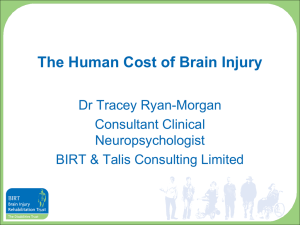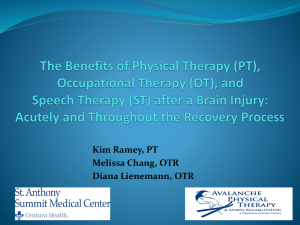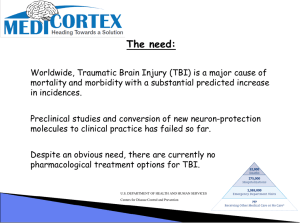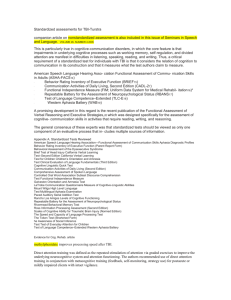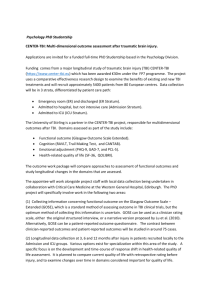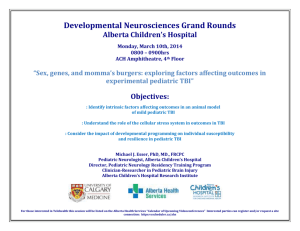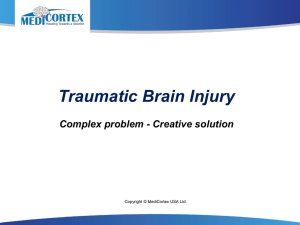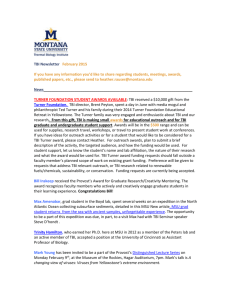November 2014 - Thermal Biology Institute
advertisement
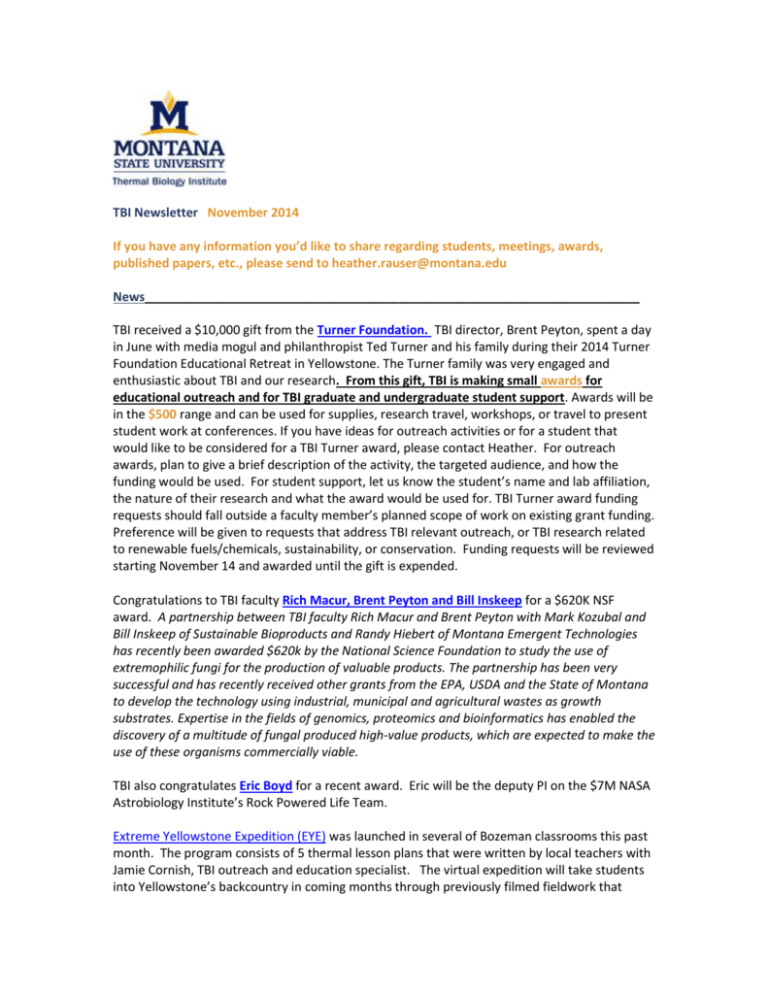
TBI Newsletter November 2014 If you have any information you’d like to share regarding students, meetings, awards, published papers, etc., please send to heather.rauser@montana.edu News________________________________________________________________________ TBI received a $10,000 gift from the Turner Foundation. TBI director, Brent Peyton, spent a day in June with media mogul and philanthropist Ted Turner and his family during their 2014 Turner Foundation Educational Retreat in Yellowstone. The Turner family was very engaged and enthusiastic about TBI and our research. From this gift, TBI is making small awards for educational outreach and for TBI graduate and undergraduate student support. Awards will be in the $500 range and can be used for supplies, research travel, workshops, or travel to present student work at conferences. If you have ideas for outreach activities or for a student that would like to be considered for a TBI Turner award, please contact Heather. For outreach awards, plan to give a brief description of the activity, the targeted audience, and how the funding would be used. For student support, let us know the student’s name and lab affiliation, the nature of their research and what the award would be used for. TBI Turner award funding requests should fall outside a faculty member’s planned scope of work on existing grant funding. Preference will be given to requests that address TBI relevant outreach, or TBI research related to renewable fuels/chemicals, sustainability, or conservation. Funding requests will be reviewed starting November 14 and awarded until the gift is expended. Congratulations to TBI faculty Rich Macur, Brent Peyton and Bill Inskeep for a $620K NSF award. A partnership between TBI faculty Rich Macur and Brent Peyton with Mark Kozubal and Bill Inskeep of Sustainable Bioproducts and Randy Hiebert of Montana Emergent Technologies has recently been awarded $620k by the National Science Foundation to study the use of extremophilic fungi for the production of valuable products. The partnership has been very successful and has recently received other grants from the EPA, USDA and the State of Montana to develop the technology using industrial, municipal and agricultural wastes as growth substrates. Expertise in the fields of genomics, proteomics and bioinformatics has enabled the discovery of a multitude of fungal produced high-value products, which are expected to make the use of these organisms commercially viable. TBI also congratulates Eric Boyd for a recent award. Eric will be the deputy PI on the $7M NASA Astrobiology Institute’s Rock Powered Life Team. Extreme Yellowstone Expedition (EYE) was launched in several of Bozeman classrooms this past month. The program consists of 5 thermal lesson plans that were written by local teachers with Jamie Cornish, TBI outreach and education specialist. The virtual expedition will take students into Yellowstone’s backcountry in coming months through previously filmed fieldwork that dovetails the lesson plans. This project was funded by a supplemental NASA grant. We hope to use these lesson plans as a jumping off point for more in-depth outreach. TBI was recently featured in the Bozeman Daily Chronicle. The article highlighted Brent Peyton and his lab’s work in the Heart Lake Geyer Basin in Yellowstone. Among those highlighted was Gabby Michel, a senior at Lone Peak High School in Big Sky. ‘Gabby’s Spring’: Thermal biology in the Yellowstone National Park backcountry Seminars_________________________________________________________________ TBI Seminar Schedule (Seminar is at 3:10pm, 108 Plant Bioscience Building) 11/17 Cheryl Kuske, Los Alamos National Lab, Chronic deposition impacts on decomposer fungal and bacterial community structure and processes in temperate forests. 12/1 Jennifer Biddle, University of Delaware Science Rocks (literally): microbes and microbialites in Pavilion Lake, Canada 12/8 Becky Hochstein, Montana State University TBA 1/26 Kristine Uldahl, Danish Archaea Centre TBA 2/17 Ramunas Stepanauskas, Bigelow Laboratory for Ocean Sciences Single cell genomics: from science fiction to mainstream microbiology **SEMINAR IS ON TUESDAY 2/23 Brian Hedlund, University of Nevada, Las Vegas Insights into candidate microbial phyla inhabiting geothermal springs in the Great Basin, China, and Yellowstone Chemistry & Biochemistry Dept. Seminars (Seminar is at 3:10pm, Byker Auditorium, CBB) 11/14 Scott L. Anderson, University of Utah, TBA 11/14 Mr. Navid Movahed, Bothner lab, will defend his Ph.D in biochemistry beginning with a seminar at 1:00 pm in ABB 138 11/21 Wettstein, TBA Micro Seminars (Seminars are Tuesdays at 4pm in Byker Auditorium) 11/18 Olaf Schneewind, University of Chicago, Protein A and adenosine synthase A, two surface 11/25 11/2 proteins of Staphylococcus aureus Courtney Sulentic, Wright State University, Transcriptional Regulation of the Immunoglobulin Heavy Chain Gene: A Novel Target of Exogenous Chemicals Jennifer Biddle, University of Delaware,The Subseafloor Biosphere: What Lies Beneath? CBE Seminars (Seminar is at 4:10pm, 321 Roberts Hall) 11/20 Catherine Kirkland, PhD student MSU, Subsurface biofilm detection using low-field magnetic resonance LRES Seminars IoE Seminars (Seminar is Wednesday at noon in EPS 126) Papers_____________________________________________________________ Recently published papers by TBI faculty and other papers of interest Valerie Copie and Brian Bother have a paper in press: Untargeted metabolomics studies employing NMR and LC-MS reveal metabolic coupling between Nanoarcheum equitans and its archaeal host Ingnicoccus hospitalis. Metabolomics, Timothy Hamerly, Brian P. Tripet, Michelle Tigges, Richard J. Giannone, Louie Wurch, Robert L. Hettich, Mircea Podar, Valerie Copié, Brian Bothner. 10.1007/s11306-0140747-6 National Meetings 2015___________________________________________________ April 12-17 European Geosciences Union General Assembly 2015 Abstract Submission Deadline: January 7, 2015 May 3-7 Joint Assembly AGU, GAC, MAC, CGU Montreal, Canada June 15-19 Astrobiology Science Conference (AbSciCon) 2015 Chicago, Illinois Abstract Submission Deadline: March 4, 2015 Proposal Calls/Funding Opportunities______________________________________________ NASA Astrobiology Institute Funding Opportunities http://astrobiology.nasa.gov/funding/ Summer Course_________________________________________________________________________ Microbial Diversity summer course, Marine Biological Laboratory, Woods Hole, MA. We seek to train outstanding individuals from diverse backgrounds who are interested in using microbial systems in their future work. We are able to offer significant (including several full) scholarships to meritorious applicants. The course provides an intense immersion experience for 20 students that lasts 6.5 weeks. Its mission is to teach professors, postdocs and advanced graduate students how to discover, cultivate, and isolate diverse microorganisms catalyzing a breadth of chemical transformations, as well as how to perform molecular and computational analyses relevant to their study. While microbial isolation techniques form the essential core of the course, we also teach basic genetic methods that enable students to study how microbes catalyze particularly interesting reactions, as well as state-of-the-art imaging techniques used in microbial cell biology. Given the wealth of DNA, RNA and protein sequences now available from isolated microbes and environmental samples, these tools are important for students to gain so they may understand what these sequences mean and in which context they are expressed—be it in the marine environment, soils, or plant and animal hosts.
